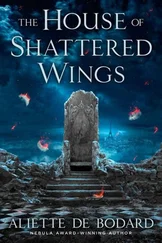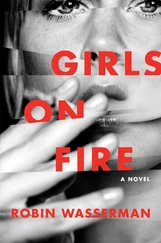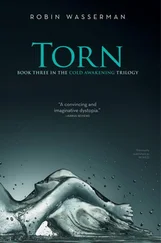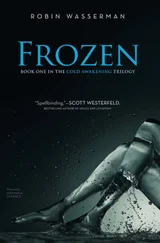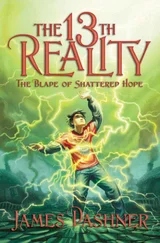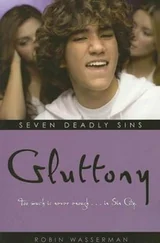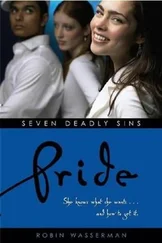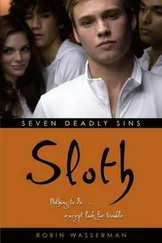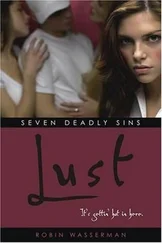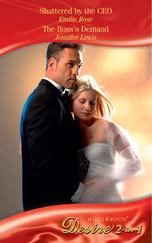“What makes you think that?”
Because that was less of an admission than How’d you know?
He didn’t bother to answer either question. “Ever think they don’t miss anything because they don’t have anything to miss?”
“Well, obviously,” I spit out. And at the beginning, I’d taken refuge in that. I wasn’t like you , I’d told Quinn. I was whole. “I’m not saying I don’t have anything to miss, I’m just saying it’s pointless. It’s better to just forget.”
“That doesn’t make it easy,” he said.
It was getting dark. And probably colder too, but temperature wasn’t something I noticed anymore. I registered it—or, at least, the body registered it—but I didn’t even feel it in the dim, distant way that I “felt” the ground was soft and wet, the bark rough against my back. It was a fact, an irrelevant one I’d learned to dismiss.
“In the pic, you were… you looked healthy,” I said, not really expecting him to do much more than nod. He did. “But I thought all the volunteers—” I cut off the word. “The early test subjects,” I corrected myself. “I thought you were all…”
“Defective?” he asked wryly. “Injured or diseased, without any options? Desperate?” He pressed his lips together in a thin, tight line. “Some of us had options,” he said after a moment. “Just not good ones.”
It was so irritating, all this ridiculous secrecy. “What’s the big deal?” I said, frustrated. “Like I really care about where you or Jude came from.”
That smile was playing on his lips again. “Could’ve fooled me.”
“You don’t want to talk about it, don’t. Whatever. I just don’t get the big deal about saying what happened.”
“Like what happened with Auden?” he said.
I froze. We stared at each other, and it was clear Riley knew he’d won, but it wasn’t a Jude-like smirk on his face, acknowledging the inevitability of his triumph. It was just something patient and watchful.
“Chocolate,” I said finally, turning the clock back to an easier question. “I miss that. And running.”
“You didn’t get enough of that just now?” he said lightly.
“Not the same.”
“If you say so. What else?”
Walker’s lips—anyone’s lips. The pleasure-pain of fingers tickling down my spine. Chillers, about a half hour into the dose, when everything made sense and nothing mattered. Crying. Boring Thursday night dinners, mocking my mother, preening under my father’s praise.
Yelling at Zo.
“No,” I said. “Your turn.”
“Fine. Sweat.” He laughed. “Stop looking at me like that.”
“You’re going to have to clarify: Is this ‘the look’ you claim I always give you, or some new look? It’s hard to keep track.”
“The look that says you think it’s weird.”
“You miss sweat? That is weird,” I agreed. “But there’s no look.”
It wasn’t that weird. I was a runner. Had been a runner. I understood about sweat.
“And burgers,” he added. “A night on the roof with a perfectly grilled soy burger—”
“Soy?” I wrinkled my nose. “If it’s not beef, it’s not a burger.”
“I wouldn’t know.” His voice was frosty.
Right, because once they’d stopped mass-producing beef, there wasn’t enough to go around. I’d done it again: forgotten the obvious. Who I was. Who he’d been. I vowed to myself that I wouldn’t do it again.
“Would you go back?” I asked. The forbidden question. But the rules didn’t apply here.
He stretched his arms behind his head, grasping the trunk he was leaning against as if he wanted to uproot the tree. “I don’t ask myself that.”
“I don’t believe you,” I said. “You weren’t like them. You were whole. Healthy. You had a life .”
“Like you?” he said. “Before whatever happened, happened?”
“Before my accident ,” I said loudly. One of us wasn’t afraid to say it out loud. “And yes, like me.”
“I wasn’t like you.”
“Why not?”
“You think you deserved it?” he asked. “Your accident? This?”
“Of course not!”
“Well, maybe I did.” Riley stood up and walked a few trees away, then sat down again. Close enough that we could still see each other, far enough that there would be no more talk. So we watched each other, and we watched the clouds drift across the wine red sky, and we waited for things to be safe.
“You sure?” I asked, hesitating over the link. The flexi ViM screen was only a few inches across with a strip on the back that adhered to the underside of my left arm. At its maximum length, which it was set at now, it fit perfectly in the stretch from my wrist to my elbow—but with slight pressure it would compress to a palm-size screen I could wrap around my wrist or slip into my pocket. The image quality wasn’t great, but I didn’t need a hi-res reminder of the death we’d escaped.
“Not really,” Riley said as my finger hovered over the screen. It was set to link in whenever I swiped a Z across its face—after managing the first two slashes, I’d frozen before the third. It was Riley’s fault. I’d spent two days chafing at his paranoia, and now that—based on no evidence whatsoever aside from the fact that time had passed and we were still here—he had decided it was safe, I couldn’t help feeling like linking in to the network would call the darkness down on us. Or at least the secops.
We didn’t do anything wrong, I reminded myself.
“It’s time, Lia.” The rangers would eventually catch us in a sweep; the longer we waited, the more inevitable our discovery became.
We linked in.
The news zones were lit up with updates about reports of the bio-attack. We picked a zone at random, setting the vid filter for most watched.
42 dead, 231 injured, the cap read.
Suspects at large.
Skinner slayings stun nation! That one was in bold.
Riley played one of the vids, a grainy aerial shot from the eye in the sky, and there I was. Upright and still as three hundred people collapsed around me.
“Shut it off,” I said, my voice as cool and even as ever.
The skinner stands alone, read the cap.
The me in the vid wasn’t panicking, she wasn’t kneeling down to help the victims, she wasn’t doing anything but watching it all play out, calm as if she’d expected it.
Riley froze the vid. “You don’t have to watch these,” he said. “I can fill you in later.”
Because he was strong and I was weak? No. “Just play the next one,” I ordered him. This one we watched all the way through. Along with the one after that.
We heard how the attackers had slipped past the security system, easily evading the biostat sensors, because, of course, they had no biostats. They’d released an aerated form of Naxophedrine into the air vents leading to the plaza. The toxin had been a favored weapon of choice back in the bad old days when you could barely walk down a city street without getting hit by, among other unpleasantries of modern life, shrapnel, radioactive dust, or weaponized squirrel flu—this before everyone wised up and got the hell out of the cities. Naxo had been one of the milder weapons—usually aimed at creating mass chaos rather than perpetrating mass murder. Among its known effects: heart palpitations, seizure, lung paralysis. All temporary.
Usually.
Authorities concluded that the attackers must have used an enhanced or unusually concentrated version of the chemical. Whatever it was, it had killed forty-two people. And then the attackers, the skinners, had slipped out as easily as they’d slipped in. Just like us.
Recriminations flew, and the Brotherhood of Man was doing its best to fan the flames. An unthinkable tragedy, but an inevitable one, the Honored Rai Savona said, repeating himself in infinite variations. Lax security despite the thousands of skinners set loose on the country, determined to transform their existential threat into a flesh-and-blood one? It was a miracle, Savona said, that something like this hadn’t happened sooner. And given the fact that the skinners could slip through a security web designed to snag organic terrorists—criminals with finger- and eyeprints, with DNA-laced epithelia, with bodies they could alter but never abandon—it would be a miracle if it didn’t happen again.
Читать дальше

